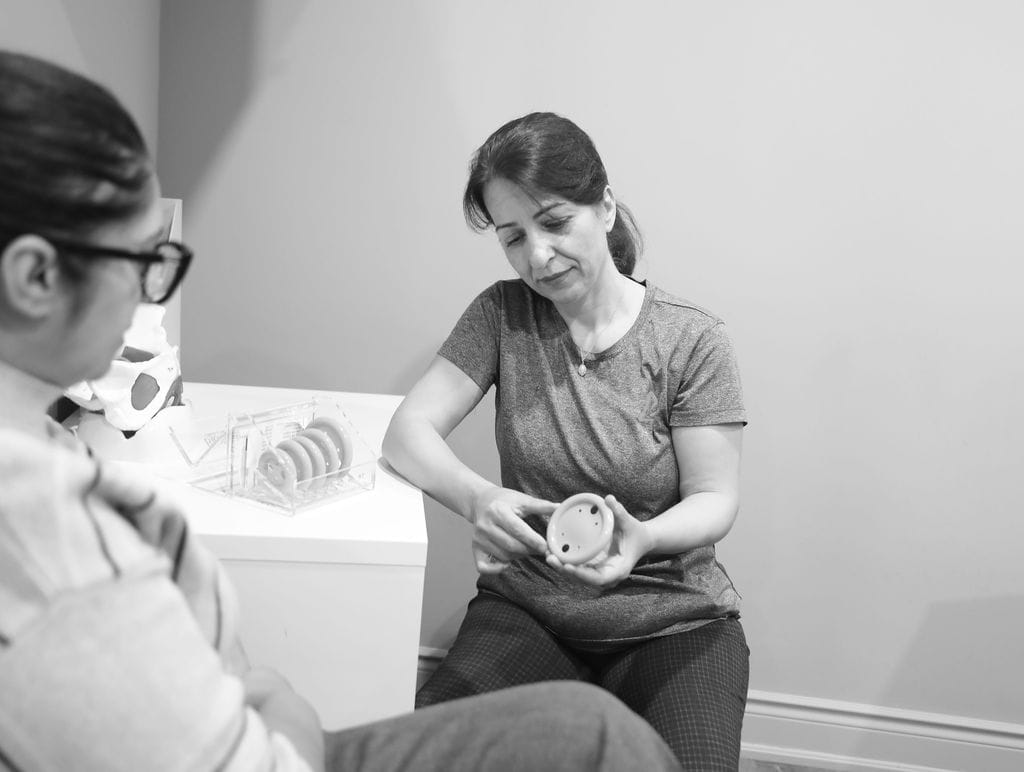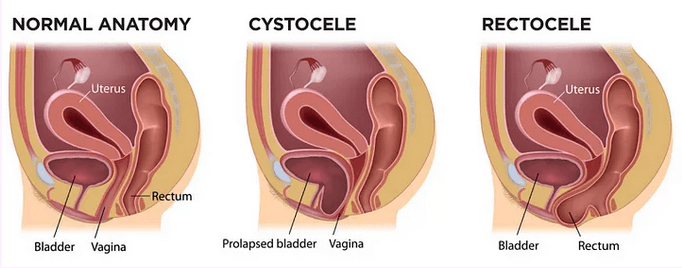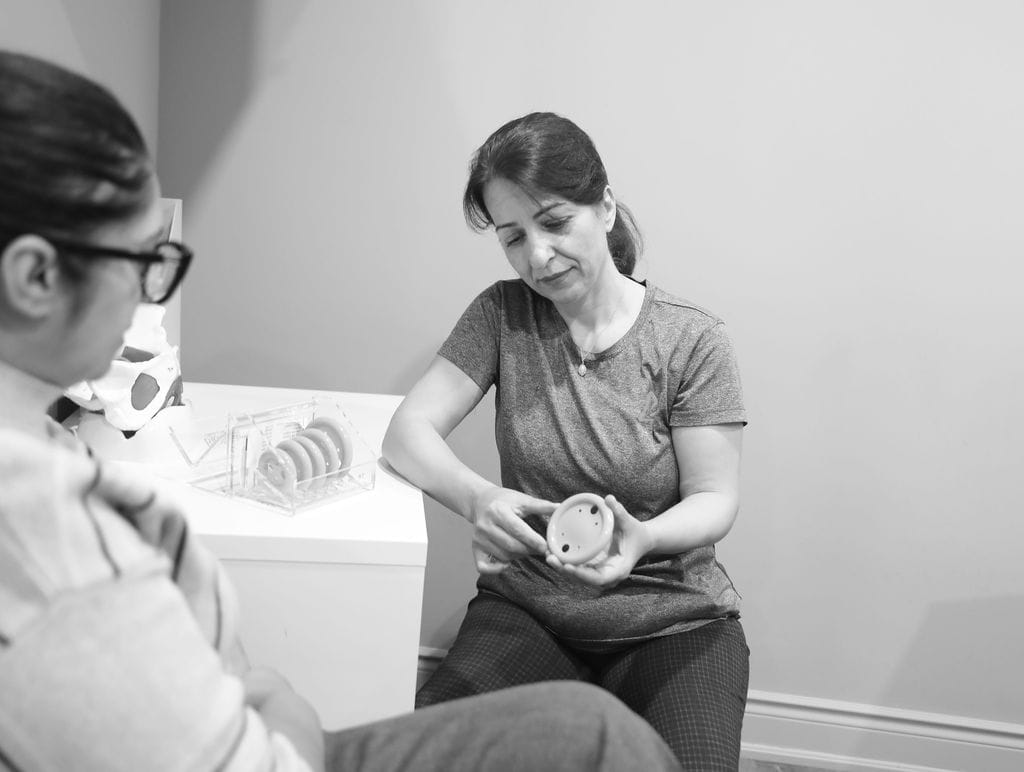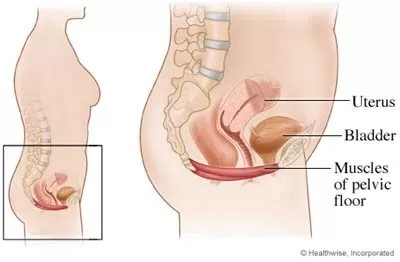Let’s talk about stretches to do when pregnant. Engaging in stretching exercises during pregnancy can contribute to the elongation of your muscles and overall body flexibility, providing increased comfort whether you’re strolling through the grocery store, engaging in a workout, or simply relaxing. The soothing effects of stretching are particularly helpful during pregnancy, offering significant benefits to your body. Moreover, incorporating stretching into your routine at this stage can aid in preparing your muscles and joints for the challenges of labor in the future.

What are the benefits of stretching during pregnancy?
Stretching during pregnancy can offer several benefits for expectant mothers. However, it’s crucial to consult with a healthcare provider before starting any new exercise routine during pregnancy. Assuming that the healthcare provider gives the green light, here are some potential benefits of stretching during pregnancy:
- Improved Flexibility
- Reduced Muscle Tension
- Enhanced Circulation
- Relief from Discomfort
- Prevention of Muscle Strain
- Promotion of Relaxation
- Preparation for Labor
- Posture Improvement
- Emotional Well-being
- Better Sleep
What can I do to stretch safely when I am pregnant?
- First and foremost, check with your doctor or midwife to ensure that it is safe for your pregnancy.
- Warm-up
- Do gentle and controlled movements
- Avoid over-doing it
- Listen to your body
- Maintain good posture
- Use the right breathing techniques
- Hydrate
What are some of the stretches I can do when pregnant?




Where can I find a pelvic health physiotherapist in Mississauga?
We have 8 locations with pelvic health physiotherapists to help you.
- Pelvic Health Physiotherapy Etobicoke – Triangle Physiotherapy Etobicoke
- Oakville Pelvic Health – Triangle Physiotherapy Oakville
- Pelvic Health Physiotherapy North York – Triangle Physiotherapy North York
- Mississauga Pelvic Health – Triangle Physiotherapy Mississauga
- Downtown Pelvic Health – Triangle Physiotherapy King West
- Uptown Toronto Pelvic Health – Triangle Physiotherapy Lawrence Park
- Pelvic Physiotherapy Downtown Toronto – Triangle Physiotherapy Queens Quay
- Mississauga Pelvic Health – Triangle Physiotherapy Erin Mills
Performing safe stretches during pregnancy can help manage discomfort and improve flexibility. For personalized prenatal care and guidance, consider physiotherapy in Etobicoke, Oakville, North York, Toronto, Lawrence Park, Queens Quay, Erin Mills, Mississauga, or Liberty Village. Experienced physiotherapists in these areas can create tailored exercise plans to support your comfort and well-being throughout pregnancy.
Written by Roshni Ravi, Pelvic Health Physiotherapist.
Sexual health is an important aspect of overall health and well-being, but it’s not always an easy topic to talk about. Many women experience sexual health dysfunctions at some point in their lives, but they may feel embarrassed or ashamed to seek help by way of pelvic floor physiotherapy. There are currently large gaps in the sexual education provided at the elementary school level. Many sex ed classes are focused on birth control and how terrible periods are.
But there is not enough information, if any, on sexual health conditions and how to seek help. We’ve had a lot of conversations with patients about what they wish they had learned in sex-ed. In this blog post, we’ll explore some of the most commonly asked questions about sexual health dysfunctions in women and offer some tips for managing them.
What is pelvic floor physiotherapy?

Pelvic floor physiotherapy focuses on treating the muscles, ligaments, and connective tissues of the pelvic floor which is a group of muscles that form a supportive hammock-like structure at the base of the pelvis. They play a key role in maintaining continence, supporting the pelvic organs, and providing stability to the spine and hips.
Pelvic floor physiotherapy involves a range of exercises, manual therapy techniques, and education to help individuals with pelvic floor dysfunction. Common conditions that may benefit from pelvic floor physiotherapy include:
- urinary and fecal incontinence,
- pelvic pain,
- pelvic organ prolapse, and
- sexual dysfunction.
Why am I suffering from a low libido? Can pelvic floor physiotherapy help?
Many women experience a decrease in sexual desire at some point in their lives. This can be caused by a variety of factors, including stress, hormonal imbalances, and relationship issues. To manage low libido, it’s important to address any underlying issues and make self-care a priority. This can include:
- practicing stress-management techniques,
- getting enough sleep, and
- engaging in regular exercise.
Why does it hurt to have sex?
Painful intercourse, also known as dyspareunia, is a common sexual health dysfunction in women. It can be caused by a variety of factors, including vaginal dryness, infections, and hormonal imbalances. To manage painful intercourse, it’s important to work with a healthcare provider to identify the underlying cause and develop a treatment plan. This may include using:
- lubricants,
- treating infections,
- or using hormonal therapy.
I struggle to orgasm during sex, why does that happen?
Many women struggle to achieve orgasm during sexual activity which can be caused by a variety of factors, including, stress, relationship issues, and hormonal imbalances. To manage orgasmic dysfunction, it’s important to work with a healthcare provider or therapist to address any underlying issues and develop strategies for improving sexual function. This may include:
- practicing mindfulness or
- engaging in self-exploration techniques.
My vagina feels like a fort that is impenetrable. Why can I not have sexual intercourse?
Vaginismus is a condition in which the muscles of the vaginal wall contract involuntarily, making intercourse difficult or impossible. It can be caused by a variety of factors, including past trauma and anxiety. To manage vaginismus, it’s important to work with a healthcare provider or therapist to address any underlying issues and develop strategies for managing anxiety and relaxing the pelvic floor muscles.
What is vulvodynia? Do I need pelvic floor physiotherapy?
Vulvodynia is a chronic pain condition that affects the vulva, or external genitalia. It can cause burning, stinging, or itching sensations, and can make sexual activity painful or uncomfortable. To manage vulvodynia, it’s important to work with a healthcare provider to identify the underlying cause and develop a treatment plan. This may include:
- using topical creams or medications,
- practicing relaxation techniques, or
- seeing a pelvic health physiotherapist.
Help! I pee my pants!

Urinary incontinence is a common condition in which urine leaks from the bladder involuntarily. It can be caused by a variety of factors, including hormonal changes, pregnancy, and pelvic floor dysfunction. To manage urinary incontinence, it’s important to work with a healthcare provider or pelvic floor physiotherapist to develop a treatment plan. This may include:
- pelvic floor exercises,
- bladder training, or
- medications.
What are the signs of menopause?
Menopause can cause a variety of changes in sexual function, including vaginal dryness, decreased libido, and painful intercourse. To manage these changes, it’s important to work with a healthcare provider to develop a treatment plan. This may include:
- using hormonal therapy,
- vaginal moisturizers, or
- engaging in regular sexual activity to maintain pelvic floor health.
Where can I find a pelvic health physiotherapist near me?
We have 8 locations with pelvic health physiotherapists to help you.
- Pelvic Health Physiotherapy Etobicoke – Triangle Physiotherapy Etobicoke
- Oakville Pelvic Health – Triangle Physiotherapy Oakville
- Pelvic Health Physiotherapy North York – Triangle Physiotherapy North York
- Mississauga Pelvic Health – Triangle Physiotherapy Mississauga
- Downtown Pelvic Health – Triangle Physiotherapy King West
- Uptown Toronto Pelvic Health – Triangle Physiotherapy Lawrence Park
- Pelvic Physiotherapy Downtown Toronto – Triangle Physiotherapy Queens Quay
- Mississauga Pelvic Health – Triangle Physiotherapy Erin Mills
In conclusion…
Many women experience sexual health dysfunctions at some point in their lives, but they may feel embarrassed or ashamed to seek help. It’s important to remember that sexual health is an important aspect of overall health and well-being, and it’s important to prioritize it in your self-care routine. If you’re experiencing any issues related to sexual function, don’t hesitate to talk to your healthcare provider or a therapist about your options. Remember, there is help!
Click here to book your consultation with one of our knowledgeable and compassionate pelvic health physiotherapists.
“Pelvic floor physiotherapy is essential for improving sexual health and overall well-being. Triangle Physiotherapy offers specialized pelvic health services across the GTA, including Physiotherapy in Etobicoke, Oakville, North York, Toronto, Lawrence Park, Queens Quay, Erin Mills, Mississauga, and Liberty Village. Our experienced team can help you address pelvic floor issues and enhance your sexual health through personalized treatment plans.”
Pelvic organ prolapse (POP) is a condition in which there is a descent of the pelvic organs into or through the vaginal or anal canal. This can present as:
- a visible bulge in the above openings,
- pressure felt in the pelvic area,
- incomplete emptying of bladder or bowels,
- discomfort during intercourse.

The main reason for prolapse is increased pressure on the pelvic floor due to:
– Chronic constipation
– Bearing children
– Pelvic floor weakness due to hormonal imbalance
Conservative non-surgical management is the first line of treatment for POP.
Your pelvic floor physiotherapist will assess the severity of your symptoms, the strength of your pelvic floor and your ability to manage pressure and stresses to your pelvic floor. Treatment would include strengthening exercises for the core and pelvic floor muscles and coordination techniques for all the inner unit muscles.
The types of pelvic organ prolapse are:
- Anterior Wall Prolapse
- Posterior Wall Prolapse
- Rectal Prolapse
Depending on the grade and type of prolapse, you might be a candidate for a pessary fitting.

A pessary is a medical grade silicone device that is inserted into the vaginal canal in order to support the vaginal walls. If you are a candidate for a pessary, it must be fitted for you by a trained professional such as gynaecologists, nurses that have a certification in fittings or pelvic health physios that are specialized to do so.
We currently have 3 practitioners at Triangle Physiotherapy who are certified in pessary fittings.
Your pelvic floor deserves more than just kegels. Speak to a pelvic health physiotherapist today to get started!
Where can I find a pelvic health physiotherapist near me?
We have 8 locations with pelvic health physiotherapists to help you.
- Pelvic Health Physiotherapy Etobicoke – Triangle Physiotherapy Etobicoke
- Oakville Pelvic Health – Triangle Physiotherapy Oakville
- Pelvic Health Physiotherapy North York – Triangle Physiotherapy North York
- Mississauga Pelvic Health – Triangle Physiotherapy Mississauga
- Downtown Pelvic Health – Triangle Physiotherapy King West
- Uptown Toronto Pelvic Health – Triangle Physiotherapy Lawrence Park
- Pelvic Physiotherapy Downtown Toronto – Triangle Physiotherapy Queens Quay
- Mississauga Pelvic Health – Triangle Physiotherapy Erin Mills
What is the Pelvic Floor?
The pelvic floor is a set of muscles that spread across the bottom of the pelvic cavity like a hammock. The pelvic floor has three openings that run through it, the urethra, the vagina, and the rectum. The functions of the pelvic floor include:
- Supporting the pelvic organs, specifically the uterus, the bladder, and the rectum
- To help provide sphincter control for the bladder and bowel
- Withstanding increases in pressure that occur in the abdomen such as coughing, sneezing, laughing, straining, and lifting
- To enhance the sexual response
What causes pelvic floor dysfunction?
The pelvic floor becomes dysfunctional in many women when there is an imbalance in the joints, muscles, and connective tissue integrity.
- Weak pelvic floor muscles: contributing to stress incontinence, urge incontinence, and pelvic organ prolapse.
- Tight pelvic floor muscles: contributing to Urinary and Fecal Urgency, Urge Incontinence, Chronic Pelvic Pain, Dyspareunia, Vaginismus, Vulvodynia, Pudendal Neuralgia, Interstitial Cystitis and Chronic Prostatits.
One of the most commonly seen conditions by pelvic physiotherapists is stress incontinence in women.

What is Stress Urinary Incontinence?
Stress urinary incontinence is the involuntary release of urine during laughter, coughing, lifting of objects or any movement that increases pressure on your bladder. When the bladder is full, the muscles in the wall of your bladder contract forcing urine through the urethra and out of your body. Sphincter muscles and pelvic floor muscles keep the urethra closed to avoid leakage of urine. These muscles relax at the same time the bladder contracts in order to allow urine to exit your body.
Causes of stress incontinence:
Hormonal changes:
During the week before your menstrual cycle, estrogen levels fall, causing symptoms of stress urinary incontinence to worsen. Additionally, as a woman goes through menopause, estrogen levels also fall causing the pelvic floor muscles to weaken.
Pregnancy:
If you are pregnant, you may experience stress urinary incontinence due to hormonal changes and the enlarging size of the uterus. During pregnancy, estrogen levels are lower, leading to less muscular strength in the sphincter and pelvic floor muscles. Additionally, as the fetus grows extra weight is placed on your bladder.
Childbirth:
Vaginal delivery can damage your pelvic floor muscles making urine leakage more likely. The supporting tissues of your bladder can also be damaged during vaginal delivery causing a cystocele, or prolapse of your bladder, symptoms of which include urinary incontinence. You may not know you have suffered damage to your pelvic floor until after you have gone through menopause, when the pelvic floor muscles are further weakened due to a fall in estrogen levels.
Hysterectomy and other surgery:
The bladder and uterus are very close together and have common supporting ligaments and muscles. Surgery to, or removal of your uterus as in a hysterectomy, risks damage to the supporting structures of your bladder. If these supporting structures are damaged, a cystocele is likely to occur. Symptoms of a cystocele include urinary incontinence.
Illnesses:
When you are ill and suffering from severe coughing, the pelvic floor muscles may fatigue and allow temporary stress incontinence due to an increase in abdominal pressure experienced while coughing.
Obesity:
Obesity can increase the abdominal pressure on the bladder leading to urinary incontinence.
Neurological damage:
Any neurological disorder such as multiple sclerosis, Parkinson’s disease or stroke can cause urinary incontinence by interfering with the nerve signals that control your bladder. Additionally, if the nerves that supply your bladder or pelvic floor muscles are damaged, urinary incontinence may also result
How is Stress Urinary Incontinence treated?
Treatments of stress urinary incontinence are individual based. The following should be considered:
Pelvic floor muscle strengthening:
Strengthening the supporting muscles of your bladder is very effective inhelping stress urinary incontinence.
Bladder training
Bladder training involves learning to delay the urge to urinate. You areinstructed to breathe deeply, relax, and distract yourself with another activitywhen you feel the urge. The initial goal is to delay urination by increments and eventually once every2 to 4 hours.
Pessary
Pessaries can help when a cystocele or prolapsed bladder is the cause forurinary incontinence. A pessary is a device of various shapes and sizes that isplaced in the vagina to support the bladder and keep it in place.
Surgery
For severe cystoceles, or bladder prolapses, surgery is needed in order tocorrect the position of the bladder and help with urinary incontinence.
Important Tips
- Avoid constipation. Repeated straining can have a very damaging effect on the pelvic floor muscles.
- It’s important for women to be active. Regular exercise and recreational sporting activities play a key role in keeping women fit and healthy well into old age
- Drink plenty of water
- Learn to tighten your pelvic floor muscles before you cough, sneeze or lift heavy items.
To get your pelvic health assessed, schedule a consultation with a pelvic floor physiotherapist at Triangle Physiotherapy and Rehabilitation!
How do I find a pelvic health physiotherapist near me?
We have 8 locations with pelvic health physiotherapists to help you.
- Pelvic Health Physiotherapy Etobicoke – Triangle Physiotherapy Etobicoke
- Oakville Pelvic Health – Triangle Physiotherapy Oakville
- Pelvic Health Physiotherapy North York – Triangle Physiotherapy North York
- Mississauga Pelvic Health – Triangle Physiotherapy Mississauga
- Downtown Pelvic Health – Triangle Physiotherapy King West
- Uptown Toronto Pelvic Health – Triangle Physiotherapy Lawrence Park
- Pelvic Physiotherapy Downtown Toronto – Triangle Physiotherapy Queens Quay
- Mississauga Pelvic Health – Triangle Physiotherapy Erin Mills
Maintaining a strong pelvic floor is essential for overall health, especially in managing incontinence, pelvic pain, and postpartum recovery. For those seeking professional physiotherapy services to strengthen their pelvic floor, there are clinics in physiotherapy Etobicoke, Oakville, North York, Toronto, Lawrence Park, Queens Quay, Erin Mills, Mississauga, and Liberty Village. These locations provide expert care and personalized treatment plans to help you achieve optimal pelvic health and well-being.





